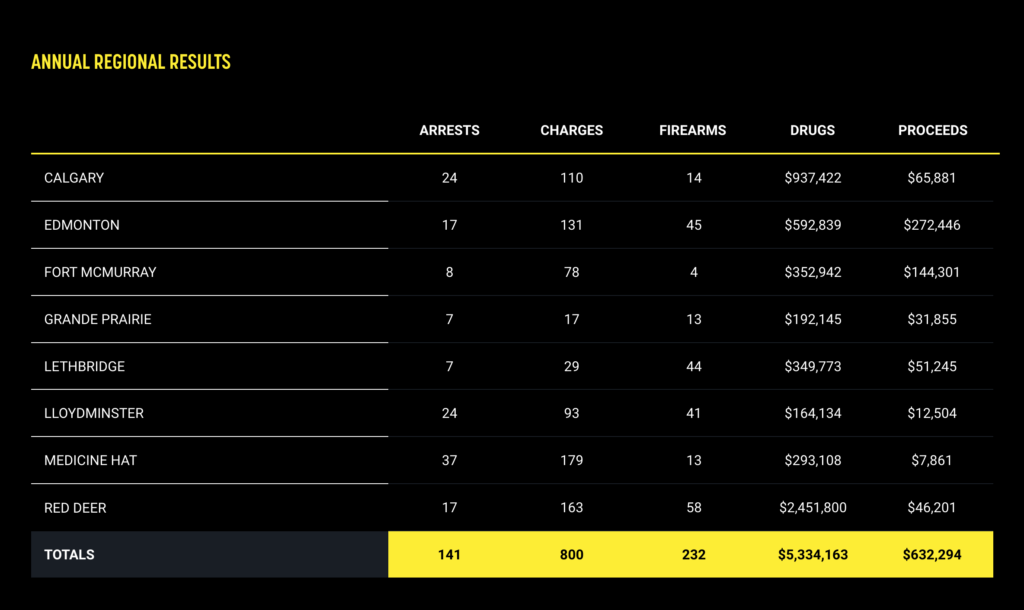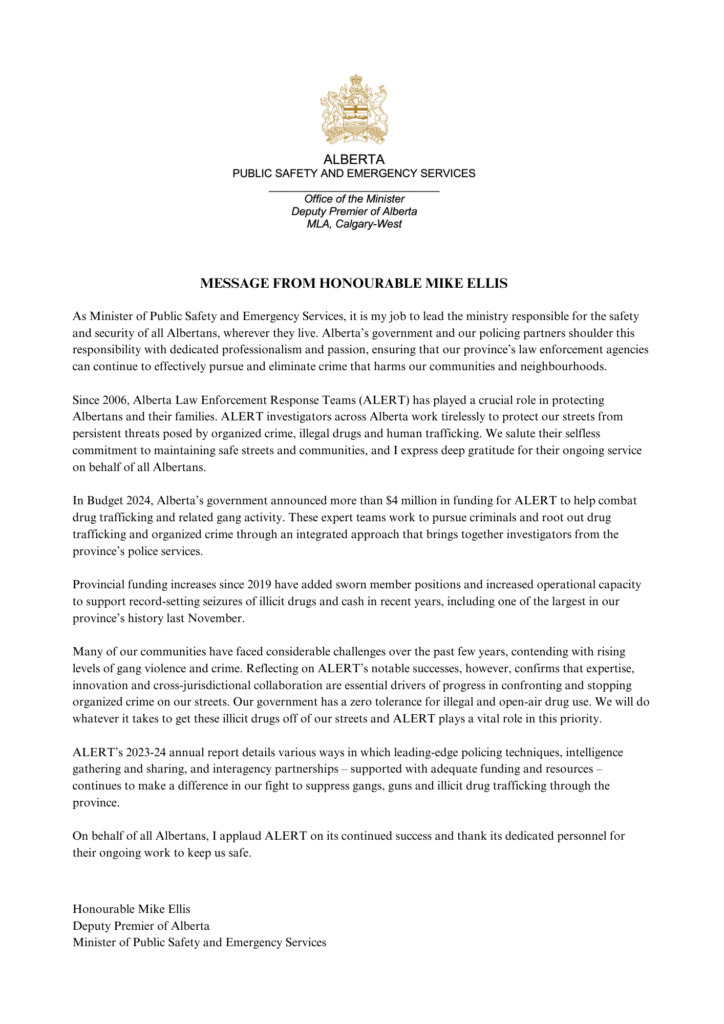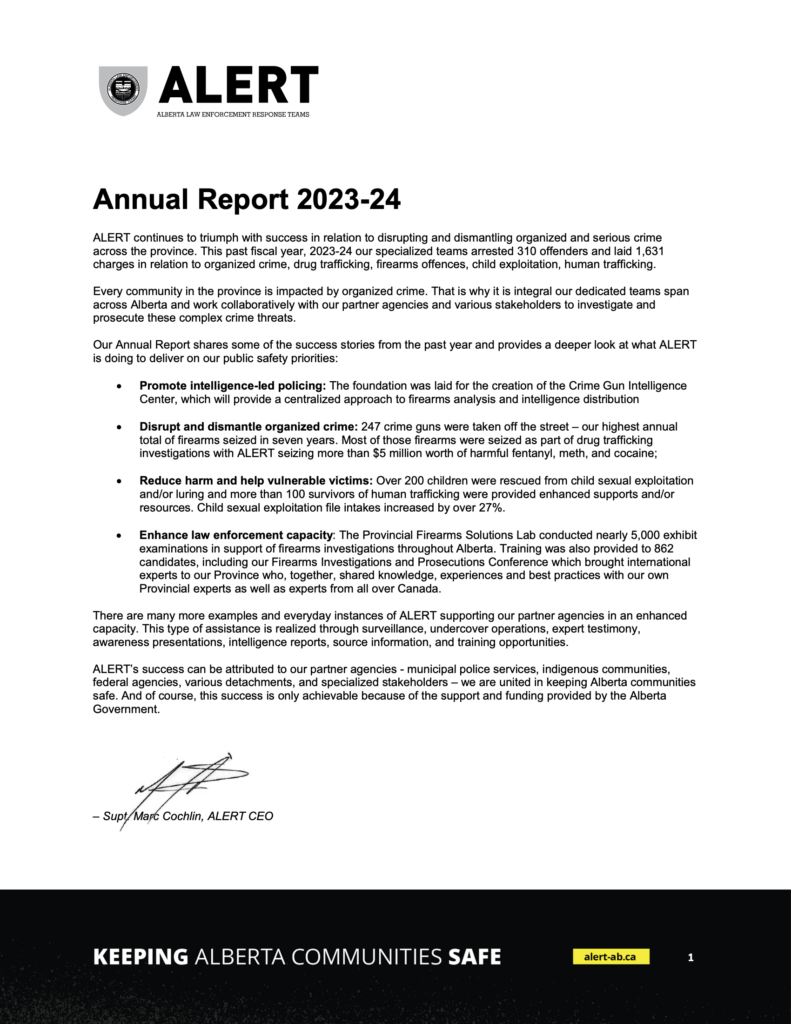©2024 Alberta Law Enforcement Response Teams (ALERT). All Rights Reserved.
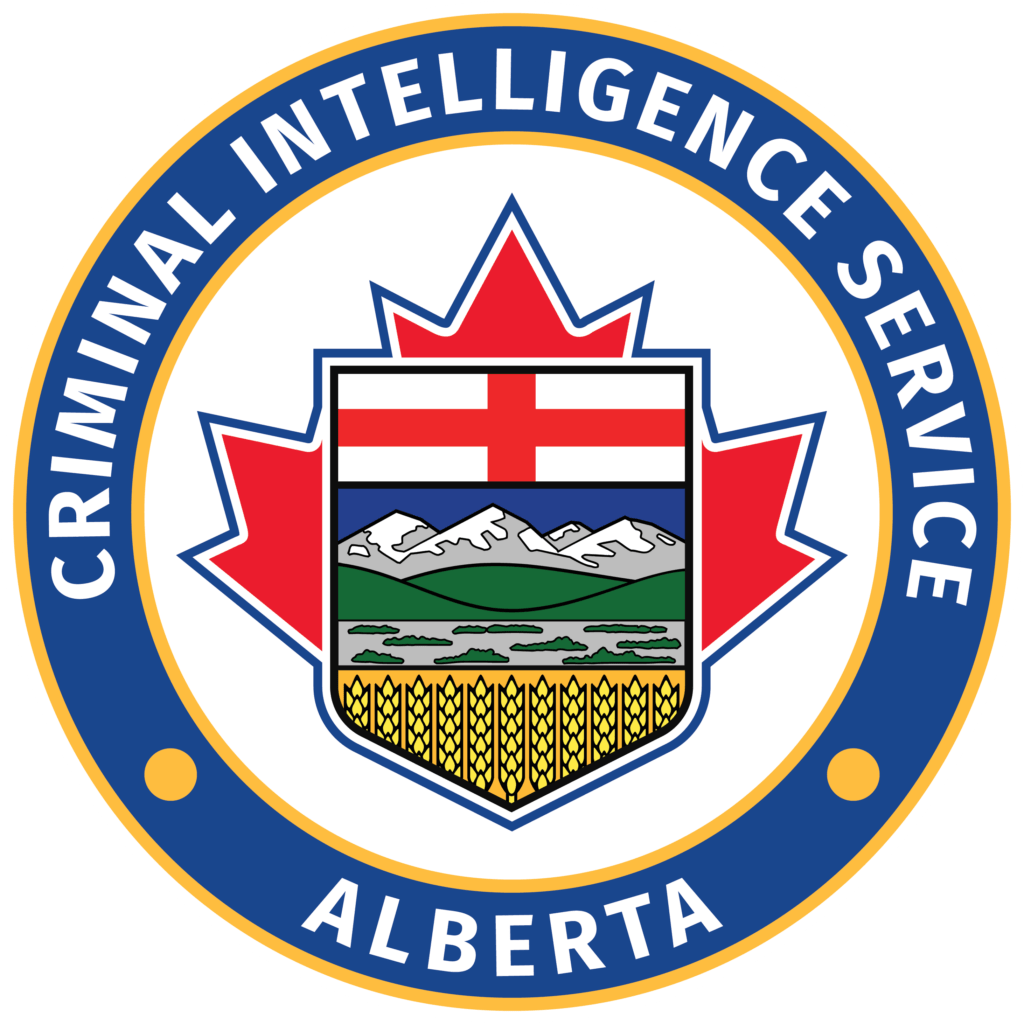
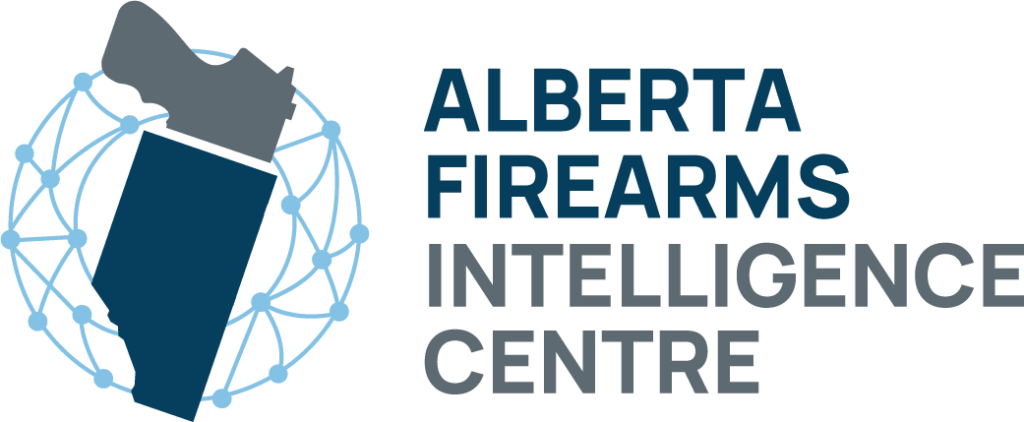
Since 2022, CISA has been guided by four pillars that focus the effort to promote an integrated, intelligence-led approach to combating organized crime; these are:
- Building Relationships with Stakeholders;
- Promote Intel Sharing Across the Province;
- Being Proactive and Identify Emerging Trends; and
- Investing in Our People Through Training and Development
Criminal Intelligence Service Alberta (CISA) has recently developed an Alberta Firearms Intelligence Centre (AFIC) to equitably expand access to firearms intelligence for all law enforcement agencies within Alberta. AFIC will provide timely, accurate, and actionable intelligence to law enforcement agencies and policy-makers to achieve the shared and collaborative goals of increasing public safety concerning firearm-related crimes.
